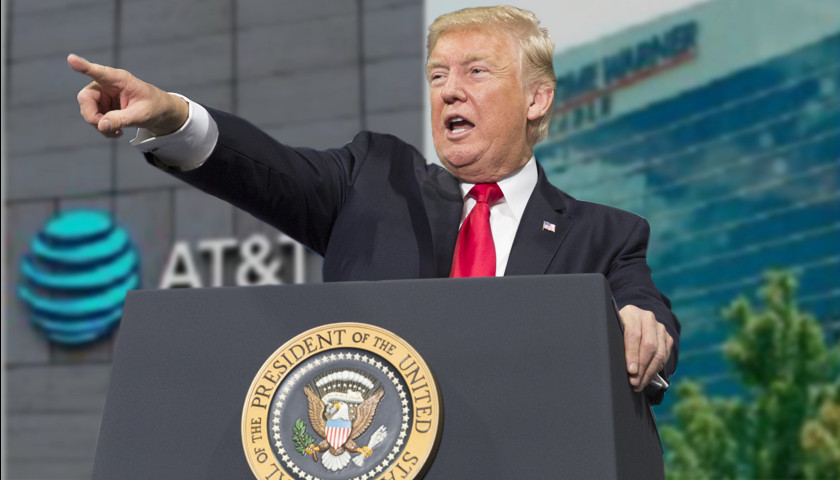Thursday morning on the Tennessee Star Report, host Michael Patrick Leahy welcomed The Huey Reports, Craig Huey to the studio who revealed the combination of left-wing groups conspiring to aid business elites and top corporations to destroy the small business owner.
Read the full storyTag: monopolies
Commentary: Break Up Google for the Public Good
by Ned Ryun It’s time for all of us to admit that Alphabet, Inc. is the 21st century equivalent of Ma Bell: it is an almost all-controlling monopoly that restricts consumer choice in order to maximize profit for the company. We all know what Ronald Reagan did to AT&T. He broke up that monopoly so Americans could have real choices and the free market could actually work. So it’s time for the Trump Administration to break up the Alphabet, Inc. monopoly. But unlike the Ma Bell monopoly, Alphabet, Inc.’s monopoly—which includes the search-engine behemoth Google—isn’t just about greater competition and more choices for the American people. It’s about so much more: free political discourse and our privacy rights as citizens. Last week in Washington D.C., the House called in Google CEO Sundar Pichai to question him about the bias against conservatives at his company, but also about data privacy and Google’s plans for working with China. Every last one of those issues should trouble every last American. The mainstream media, as the mindless propagandists of the deep state and Democratic Party, are still trying to maintain the miserable hoax of Russian collusion to cover up their own misdeeds and…
Read the full storyThe New York Stock Exchange Monopoly Set to Raise Fees to Access Trade Data
by Robert Romano Government-created monopolies are not a new thing, and indeed there are times when Congress has determined that having a government charter for an authoritative, monopoly function can serve a valuable public need. Sometimes these are agencies. The Federal Reserve is tasked by Congress to control the money supply. Sometimes they are Government Sponsored Enterprises. Mortgage giants Fannie Mae and Freddie Mac service millions of home mortgages in the United States. Ginnie Mae, which handles FHA and VA loans, is actually a bona fide government agency, unlike Fannie and Freddie, which are publicly traded companies. The Internet Corporation for Assigned Names and Numbers (ICANN) was a non-profit created to handle the U.S. Department of Commerce government contract to manage the domain name system in the late 1990s that links easy to remember domain names with unique IP addresses. That contract was allowed to lapse in 2016, and now ICANN operates an unregulated global monopoly of the DNS system. Whether these monopolies should have been created in the first place or if the government acts that created them were even constitutional is one matter, one that can be debated and has been debated. But as is often the case,…
Read the full storyCommentary: Trump DOJ Anti-Trust Actions on Media Mega-Mergers May Protect First Amendment
By Rick Manning The First Amendment to the Constitution protecting the right to engage in speech is fundamental to a free country. The past few years have seen multiple attempts by the Democratic Party and their far-left supporters to create a new definition of this right – the freedom from speech that one doesn’t like. While this trend toward the left trying to redefine rights as being freedom from activity they don’t like is not new, it has taken hold as the dominant philosophy of the Democratic Party in the past few years. It was just in September of 2014, that Senate Democrats voted to repeal the First Amendment and replace it with language that would end protections for political speech. Now, violent left-wing protesters shut down speeches of those they don’t agree with on college campuses and spent last year attacking Donald Trump supporters with the acquiescence of local officials and the police they direct in places like Chicago and San Jose, California. Facebook, Google, and Twitter have all come under fire for restricting speech from individuals and groups on the right with which their internal political culture disagrees. It is this new, intolerant attitude toward speech that is leading…
Read the full story



